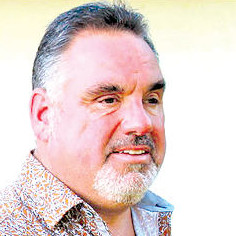
Mark Lyndon-Jones
Life presents us with many opportunities to forgive people when we feel hurt, disappointed or challenged in various scenarios – at work, in the home, through sport and even in church life.
One notable example is the story of Joseph in the book of Genesis. Joseph experienced betrayal and mistreatment by his own brothers who sold him into slavery. Despite enduring years of slavery and imprisonment, Joseph eventually rose to a position of power in Egypt. When a severe famine struck the land and Joseph’s brothers came seeking food, he had a choice: seek revenge or extend forgiveness.
In a powerful moment of reconciliation, Joseph revealed himself to his brothers and forgave them completely. He told them, “I am your brother Joseph, the one you sold into Egypt! And now, do not be distressed and do not be angry with yourselves for selling me here, because it was to save lives that God sent me ahead of you,” (Genesis 45:4- 5). Joseph exemplified total forgiveness by choosing to release any anger or resentment he may have harboured towards his brothers. He embraced forgiveness, understood God’s greater plan in his life, and used his position to provide for his family and reconcile with them.
The story of Joseph demonstrates the power of forgiveness to heal wounds, restore relationships, and bring about reconciliation even in the most difficult circumstances. It serves as a reminder that total forgiveness is possible through God’s grace and can bring about transformation and restoration. RT Kendall authored a whole book about it, entitled ‘Total Forgiveness’, which was very influential when life presented me with one of my own opportunities to forgive.
One of the key Scriptures that highlights the importance of forgiveness is Ephesians 4:32, which says, “Be kind to one another, tender-hearted, forgiving one another, as God in Christ forgave you.” Forgiveness is not always easy. It requires humility, vulnerability, and a willingness to let go of the desire for revenge or to hold a grudge – a good practice in becoming a whole man. When we choose to forgive, we release the burdens of anger and resentment, allowing God to heal our wounded hearts.
In Colossians 3:13 we are encouraged to: “bear with each other and forgive one another if any of you has a grievance against someone. Forgive as the Lord forgave you.” This verse serves as a reminder that forgiveness is an ongoing process that requires us to continually extend grace to others just as God has extended grace to us.
As Christian men, let us strive to cultivate a heart of forgiveness. Let us be quick to forgive, slow to anger, and compassionate in our relationships. Then we not only experience personal healing but also create an environment where relationships can be restored and flourish. Let us choose forgiveness, allowing God’s love to flow through us and bring transformation to our lives and the lives of others, and in the process become bigger-hearted men.
By embracing the power of forgiveness, we can embody Christ’s love, extend his grace, and become agents of healing and restoration in a broken world.
This article first appeared in Direction Magazine. For further details, please click here.
Enjoy this article? Don't forget to share